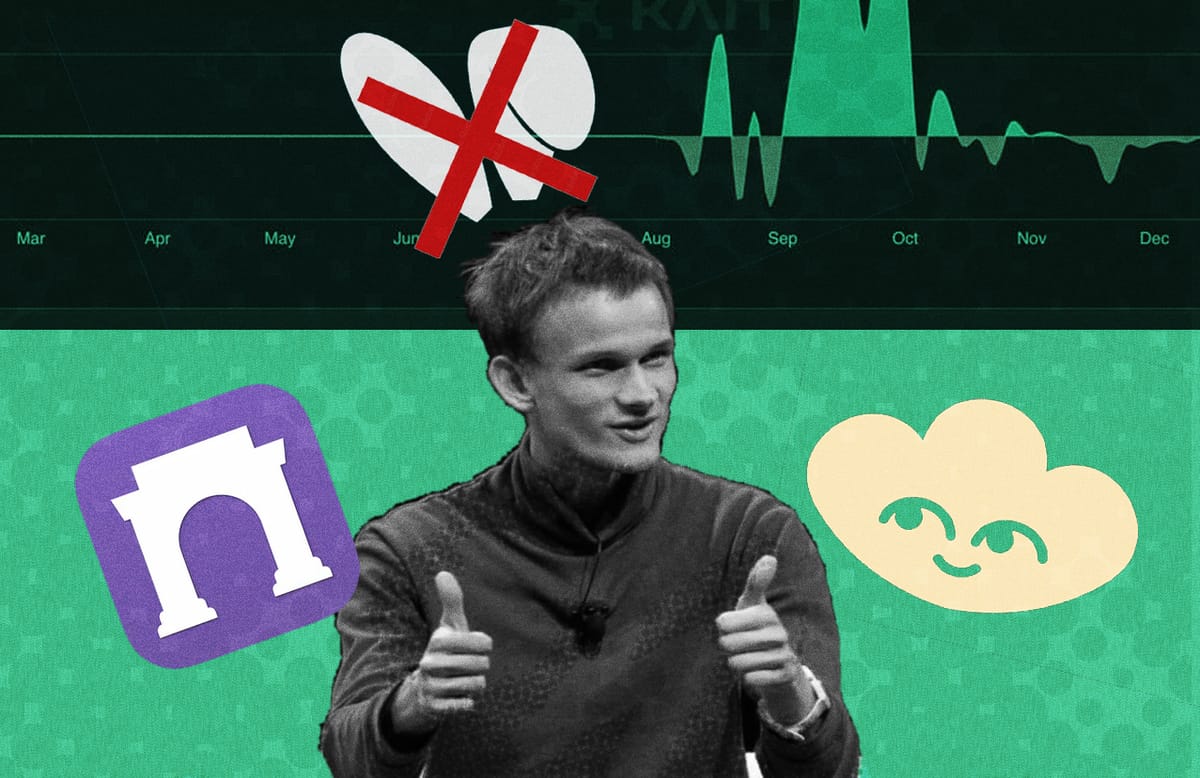
Friend.tech, once celebrated as a 'crypto darling', has fallen from a promising decentralized social media (DeSoc) platform to being largely abandoned in just four months. Deployed on the Coinbase-incubated Layer 2 network Base, Friend.tech has seen its engagement plummet, with its Total Value Locked (TVL) decreasing by half, from $52 million in October to around $26.8 million now. According to Dune Analytics, despite leading the DeSoc field in 2023, Friend.tech has seen its daily transactions fall over 99% from last summer's highs.
In a tweet on Monday, Ethereum co-founder Vitalik Buterin criticized the broader trend in the crypto space, with specific mention of crypto social media and GameFi, of prioritizing financial speculation over quality and enjoyable experiences, a sentiment he has previously echoed in various contexts.
Dragonfly founder Haseeb Qureshi commented: "I suspect it's too early to write off the concept of a social network deeply tied to money/speculation. Most ideas are tried many times until they work."
"Bad gamefi is using financial speculation as a substitute for fun. Blockchain games need to be fun as games" - approx quote I've said many times
— vitalik.eth (@VitalikButerin) February 5, 2024
I believe a similar thing for crypto social.
Registering a prediction: farcaster and lens will NOT be deserted in 4 months, or 1 yr.
However, Buterin predicts that both Farcaster and Aave's Lens Protocol, two emerging blockchain social media protocols, will continue to thrive and engage users over the next year. In a December 28 post titled, 'Make Ethereum Cypherpunk Again', Buterin mentioned both platforms as crypto alternatives to Facebook and Twitter (X). More recently, during an exclusive AMA (ask me anything) on Farcaster, Vitalik Buterin shared his hopes for Farcaster and Lens Protocol to eventually rival Meta's scale, highlighting his optimism for DeSoc platforms, notably after a hack of his Twitter account had caused heavy losses for followers.

In 2020, former Coinbase executives Dan Romero and Varun Srinivasan started working on a credibly neutral protocol and ultimately launched Farcaster, which supports social dApps on the Optimism L2 Ethereum scaling solution. It is open-source, promoting a 'permissionless' environment where users control their interactions and data. Farcaster secured $30 million in seed funding in July 2022.
Farcaster's daily active users recently surged by 750%, hitting almost 42,800 on February 6, following the introduction of the 'Frames' feature on its Warpcast app on January 27, according to Dune. Frames allows users to interact directly with external content without leaving the app. Farcaster encourages users to link an Ethereum wallet to their Warpcast app to access all available features, such as airdrops and NFT minting. Unlike Friend.tech and DeSo, Warpcast offers a user-friendly experience, enabling access to basic features without requiring continuous transactions.
Lens Protocol, a 'Web3 social graph' by Aave, launched its V2 upgrade on the Polygon Proof-of-Stake blockchain last November. This update introduced features like multisig-managed profiles and tipping on smart posts. Founded by Stani Kulechov, Lens Protocol aims to offer a more modular design for enhanced user autonomy and flexibility. The V2 upgrade is part of Lens's goal to overcome the limitations of traditional social media platforms. Lens currently has over 375,000 unique users and reports steady daily transactions.
Buterin's recent endorsement of Farcaster and Lens Protocol is significant, potentially heralding a new wave of users and interest in these platforms. As a respected figure within the crypto community, Buterin's words carry weight and could serve as a catalyst for further increased adoption.

